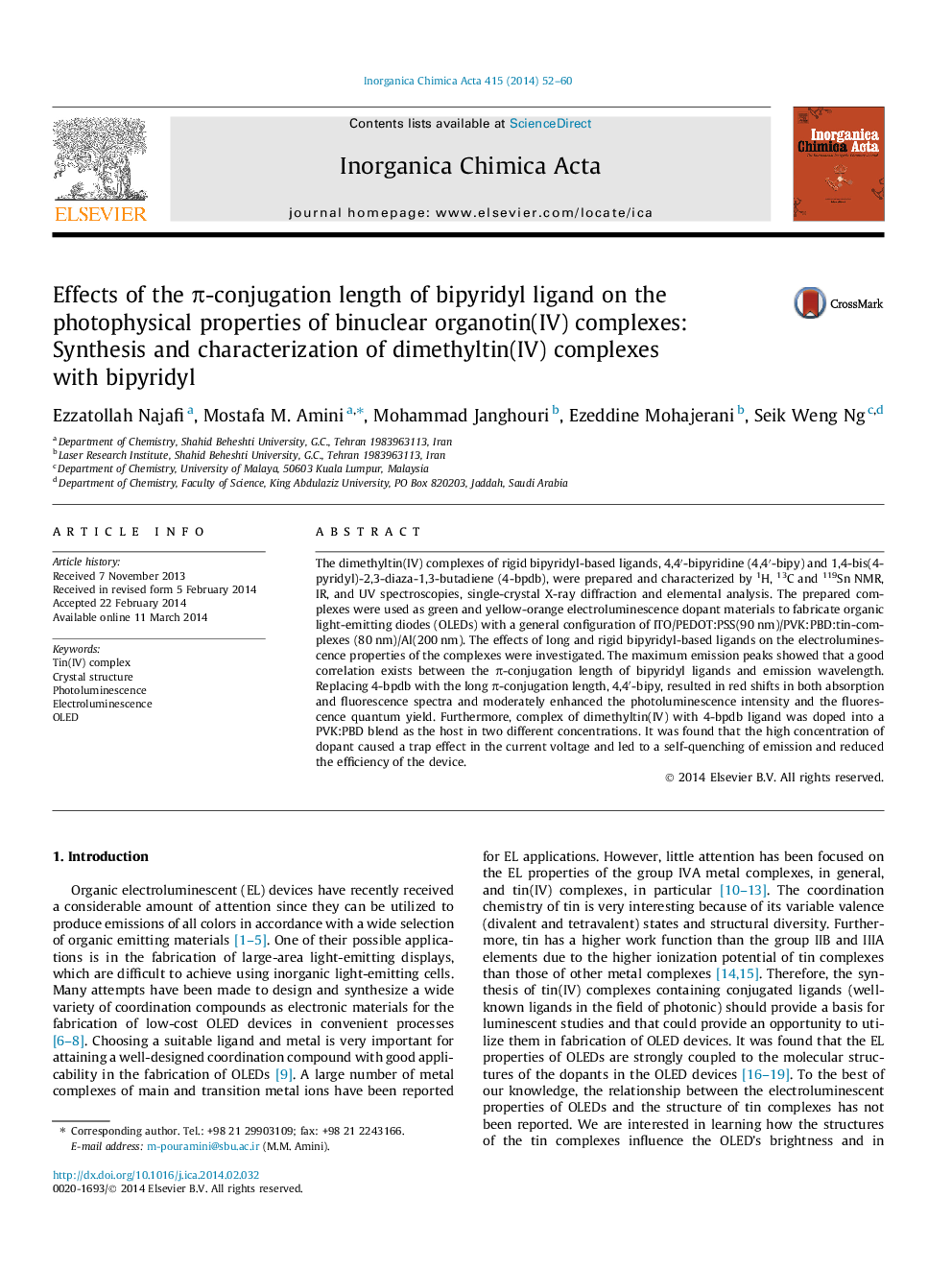| کد مقاله | کد نشریه | سال انتشار | مقاله انگلیسی | نسخه تمام متن |
|---|---|---|---|---|
| 1305607 | 1499173 | 2014 | 9 صفحه PDF | دانلود رایگان |

• Two organotin(IV) complexes were prepared and used for fabrication of OLEDs devices.
• Effect of ligands on electroluminescence properties of the OLED was investigated.
• Correlation exists between the π-conjugation length and emission wavelength.
The dimethyltin(IV) complexes of rigid bipyridyl-based ligands, 4,4′-bipyridine (4,4′-bipy) and 1,4-bis(4-pyridyl)-2,3-diaza-1,3-butadiene (4-bpdb), were prepared and characterized by 1H, 13C and 119Sn NMR, IR, and UV spectroscopies, single-crystal X-ray diffraction and elemental analysis. The prepared complexes were used as green and yellow-orange electroluminescence dopant materials to fabricate organic light-emitting diodes (OLEDs) with a general configuration of ITO/PEDOT:PSS(90 nm)/PVK:PBD:tin-complexes (80 nm)/Al(200 nm). The effects of long and rigid bipyridyl-based ligands on the electroluminescence properties of the complexes were investigated. The maximum emission peaks showed that a good correlation exists between the π-conjugation length of bipyridyl ligands and emission wavelength. Replacing 4-bpdb with the long π-conjugation length, 4,4′-bipy, resulted in red shifts in both absorption and fluorescence spectra and moderately enhanced the photoluminescence intensity and the fluorescence quantum yield. Furthermore, complex of dimethyltin(IV) with 4-bpdb ligand was doped into a PVK:PBD blend as the host in two different concentrations. It was found that the high concentration of dopant caused a trap effect in the current voltage and led to a self-quenching of emission and reduced the efficiency of the device.
Two binuclear organotin(IV) complexes were prepared and characterized by 1H, 13C and 119Sn NMR, IR, and UV spectroscopes and single-crystal X-ray diffraction. The prepared complexes were used as green and yellow-orange EL dopant materials to fabricate organic light-emitting diodes (OLEDs).Figure optionsDownload as PowerPoint slide
Journal: Inorganica Chimica Acta - Volume 415, 1 May 2014, Pages 52–60